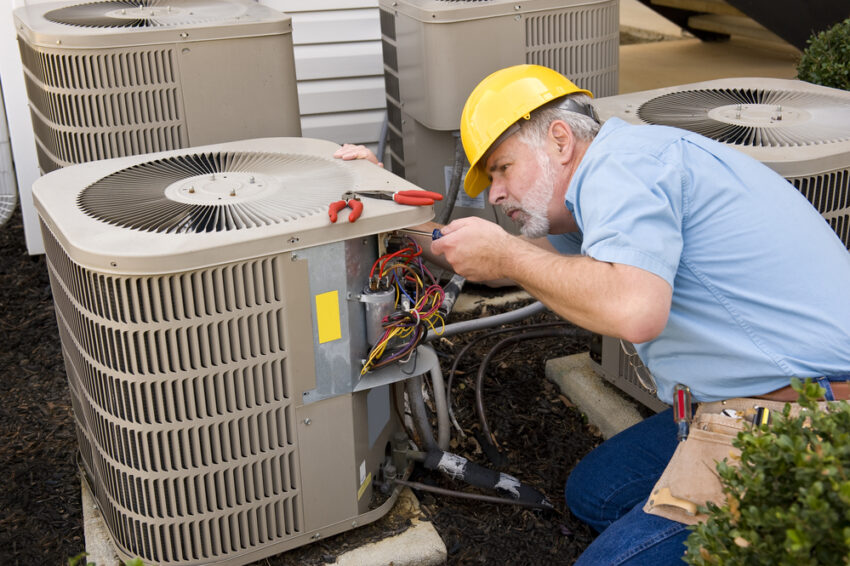Table of Contents
As the temperature rises, air conditioning becomes a must-have in every household. It not only keeps you cool and comfortable but also protects you from heat-related illnesses. But how does an air conditioner work? What is the installation cost? And most importantly, how can you save on your air conditioning costs? In this guide, we will answer all these questions and more. We will take a deep dive into the world of efficient air conditioning and introduce you to AirOstat, Inc.- the ultimate solution for all your air conditioning needs. So sit back, relax, and get ready to learn everything you need to know about keeping your home cool and comfortable all year round!
What is air conditioning and why is it necessary?
Air conditioning is essential for maintaining comfort and productivity during hot weather. It helps reduce the risk of heat-related illnesses and protects electronic equipment from overheating. Additionally, it improves indoor air quality by filtering out pollutants and allergens.
How does an air conditioner work?
Air conditioners work by removing heat and moisture from indoor air through a refrigeration cycle. The system circulates air, cooling it as it passes over evaporator coils. The cooled air is then blown back into the room, repeating the process until the desired temperature is reached.
Air conditioning installation cost
Factors like space size, system type, and features determine air conditioning installation cost. Professional HVAC services ensure efficient operation and accurate cost estimates.
How to save on air conditioning costs?
To save on air conditioning costs, schedule regular maintenance for efficient operation. Use a programmable thermostat to adjust temperature settings when you’re away. Seal air leaks in doors, windows, and ductwork to prevent cool air from escaping. Use fans to circulate air and consider installing blinds or curtains to reduce heat gain.
How can I choose the right size and type of air conditioning unit for my home or office?
When selecting an air conditioning unit, consider the size of the room or space you want to cool. Look for the Seasonal Energy Efficiency Ratio (SEER) rating to determine its energy efficiency. Central air conditioning is ideal for larger spaces, while window units are suitable for smaller areas. Consulting with a professional HVAC technician will help determine the right size and type of unit for your specific needs.
What factors affect the efficiency of an air conditioning system?
Factors that impact the efficiency of an air conditioning system include the size of the unit in relation to the space being cooled, the age and condition of the system, proper installation and maintenance, and the climate and temperature conditions where it is used.
What are the benefits of using a programmable thermostat with my air conditioning system?
Using a programmable thermostat with your air conditioning system offers several benefits. It helps save money on energy bills by automatically adjusting the temperature when you’re not at home. Additionally, it maintains a consistent and comfortable temperature. Advanced models even allow remote control through a smartphone app.
air conditioning is an essential part of modern living, especially in regions with extreme climates. Understanding how an air conditioner works and the installation costs involved can help you make informed decisions when it comes to cooling your space efficiently. Additionally, implementing strategies to save on air conditioning costs can not only benefit your wallet but also contribute to energy conservation and a more sustainable future. By optimizing the efficiency of your air conditioning system and considering factors such as insulation, thermostat settings, and regular maintenance, you can enjoy a comfortable indoor environment without breaking the bank. Stay cool and save money with these practical tips and tricks.
How can I tell if my air conditioner needs to be serviced or repaired?
Signs that your air conditioner may need servicing or repairs include unusual noises, strange odors, poor airflow, weak cooling, and foul smells. Regular maintenance and inspections are crucial for preventing major repairs and ensuring the efficient functioning of your air conditioning system.
What are some common causes of inefficient air conditioning?
Common causes of inefficient air conditioning include dirty or clogged air filters, leaking ducts, low refrigerant levels, and improperly sized or installed units. Addressing these issues can help improve the efficiency of your air conditioning system.
What are some common maintenance tasks that can help improve the efficiency of my air conditioning system?
Regularly cleaning or replacing air filters, keeping the outdoor unit free from debris, scheduling annual maintenance with a professional HVAC technician, and considering a programmable thermostat can all improve the efficiency of your air conditioning system.

